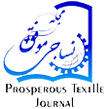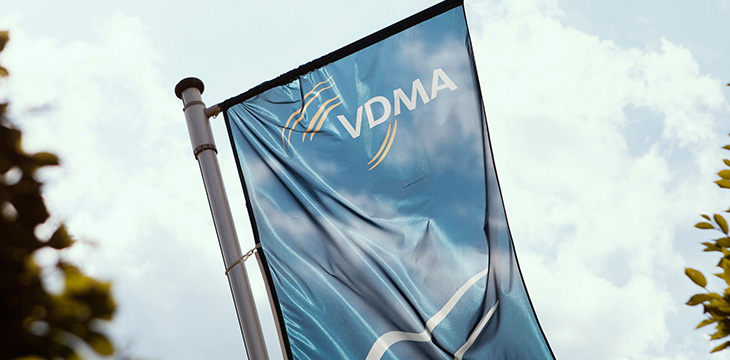In a position paper, the companies organised in the VDMA Textile Machinery Association welcome the ambitions of the EU to promote climate protection, in particular the approach of combining the goals for the EU textile and clothing industry into a sector-specific strategy.
Up to now, the increasing textile consumption around the world, due to growing population and purchasing power has been accompanied by a rising use of resources. “The textile machinery companies organised in the VDMA are geared towards a functioning circular economy. With our highly efficient technologies we are an indispensable partner in this transition process”, explained Regina Brückner, Chairwoman of the VDMA Textile Machinery Association and Managing Associate of Brückner Trockentechnik.
In the new position paper, the executive board of the VDMA Textile Machinery Association emphasises that the new framework must be practicable. Ms Brückner said: “The EU must strike the right balance between necessary, yet also minimal, legislative regulation. A successful transition requires a level playing field which sets out fair rules for sustainability, thereby enabling European companies to nonetheless increase their international competitiveness.”
The complete position paper is as follows
The matter at hand:
Discussions surrounding the clothing and textile industries are heating up. Textile consumption around the world is increasing due to the growth in the global population and purchasing power. Up to now, this has been accompanied by high and growing resource consumption on the one hand, and overproduction as well as leftover stocks and waste on the other. The VDMA companies are committed to reducing the consumption of resources in the textile value chain with highly efficient technologies!
The goal is to utilise potential for saving resources such as water, energy and chemi-cals, to reduce CO2 emissions and promote recycling. To this end, the mechanical engineering industry provides the technical prerequisites for the efficient further use and reuse of textile raw materials, be they natural or man-made fibres. This issue will become ever more important over the coming years. We are committed to promoting the responsible use of resources!
The VDMA and its members
welcome the ambitious plans of the EU with regard to sustainability and climate policy, as well as the bundling of goals for the EU textile and clothing industry into a sector-specific strategy.
declare their support for the UN Sustainable Development Goals as well as ecologically and socially responsible company management.
support the transformation to a functioning circular economy, the textile machinery industry is an indispensable partner in this transition.
The EU’s sector-specific textile and clothing strategy
The VDMA and its members welcome the ambitions of the EU to promote climate protection and, in particular, the approach of combining the goals for the EU textile and clothing industry into a sector-specific strategy. Independent of this, value chain-specific raw material cycles should also be observed.
The new framework and market conditions must be practicable, facilitating progress in the transition towards sustainability of the textile producing and processing industry, as well as supporting the competitiveness of the sector in the EU.
The circular economy must result in sustainable economic growth in the EU, with careful and realistic targets and clear planning horizons a requirement here, alongside support for investments, research and innovation.
The textile producing and processing industry is a global and highly competitive market that comprises diversified and multi-stage value chains around the world, as well as an almost infinite product range. The EU must strike the right balance between necessary, yet also minimal, legislative regulation. A successful transition requires a level playing field which sets out fair rules for sustainability, thereby enabling European companies to nonetheless increase their international competitiveness.
Textile machinery focusses on sustainable components, machines and plants
The VDMA textile machinery manufacturers declare its support for the UN Sustainable Development Goals as well as ecologically and socially responsible company management. The companies align themselves with the 12 Sustainability Guidelines of the Me-chanical and Plant Engineering Industry regarding the use and production of sustaina-ble components, plants and machinery, also in their supply chains. The textile machinery companies in the VDMA create efficient and durable products and take into account their recyclability from development to production and retrofitting to end-of-use.
Textile machinery as a partner for sustainable solutions
The VDMA textile machinery companies orient themselves towards a functioning circular economy and are an indispensable partner for this transition. The basic global needs for clothing, protection and hygiene must be met sustainably, while the availability of textile products must be guaranteed for more sustainable technical applications ranging from lightweight construction to medical textile products!
The technology providers organised in the VDMA Textile Machinery Association work together to develop the changes that are needed. Important topics include the following:
For many years, textile machinery companies organised in the VDMA have been improving the energy and resource efficiency of their customers’ textile processes using new machinery and technologies. The Blue Competence sustainability initiative clearly highlights this throughout the whole of the mechanical and plant engineering industry. In addition, the textile machinery manufacturers are redoubling their efforts to illustrate implementation solutions and technology offerings for sustainable production and business models for all interested parties along the textile chain.
As part of the “Textile Machinery Webtalk” events that started in May 2021, various technology webinars have been held on the topic of recycling and sustainability in the textile value chain. From the second half of 2021, these webtalks have been focussing on the challenges of a circular economy under the title
“Sustainable Technologies for a Circular Economy” (https://en.indus-tryarena.com/vdma-textile-machinery/webinar).
The VDMA textile machinery companies strongly support the textile industry’s demands on policymakers to implement practicable, technologically open and competition-neutral guidelines for the introduction of a functioning circular economy.
The textile machinery manufacturers organised in the VDMA provide their customers with cross-sector and cross-company support. Textile designers and engineers alike are to develop new, sustainable solutions with recyclable designs. At the end of the product life cycle, textile materials should remain in the cycle with the lowest possible energy input and high quality. The mechanical engineering companies have decided to focus on this and accelerate progress with prize competitions for young talent, with the aim to generate new stimuli for the entire textile chain!
The VDMA textile machinery manufacturers support collaborative textile research both financially and with their expertise. The member companies closely monitor projects and results regarding the challenges of recycling, before announcing them in the industry and incorporating them in company-specific development programmes.
The VDMA mechanical engineering companies invite to actively tackle the challenges of the textile circular economy in expert forums and working groups across all stages of the value chain.
In VDMA, the sector will increase its efforts to strengthen exchange on existing and upcoming regulations for the textile circular economy in the sales markets. In doing so, it aims to devise suitable technical solutions for the respective markets quickly and efficiently.
VDMA Textile Machinery
Around 130 companies are members of the association, covering over 90 percent of industry production in Germany. Ten per cent of our member companies are from Austria, Switzerland and France. The German member companies generate a turnover of more than three billion euros in Germany and one billion euros abroad. The export rate is around 90 per cent. Regina Brückner from BRÜCKNER Trockentechnik is the Chairwoman of the association. Other Board members are: Johann Philipp Dilo, DILO, Peter D. Dornier, Lindauer DORNIER, Stefan Flöth, A. MONFORTS, Arno Gärtner, KARL MAYER, Dr Janpeter Horn, HER-ZOG, Anton Kehl, SAURER SPINNING, Markus Kleindorp, MEMMINGER-IRO, Andreas Lukas, ANDRITZ KÜSTERS, Benjamin Mayer, MAYER & CIE, Eric Schöller, GROZ-BECKERT, Georg Stausberg, OER-LIKON TEXTILE, Verena Thies (Deputy Chairwoman), THIES, Heinrich Trützschler, TRÜTZSCHLER.
Contact
Executive Board and Management,
VDMA Textile Machinery
Regina Brückner, Chairwoman of the Executive Board
Thomas Waldmann, Managing Director:
Lyoner Straße 18, 60528 Frankfurt am Main
Email: thomas.waldmann@vdma.org
Website: https://txm.vdma.org

